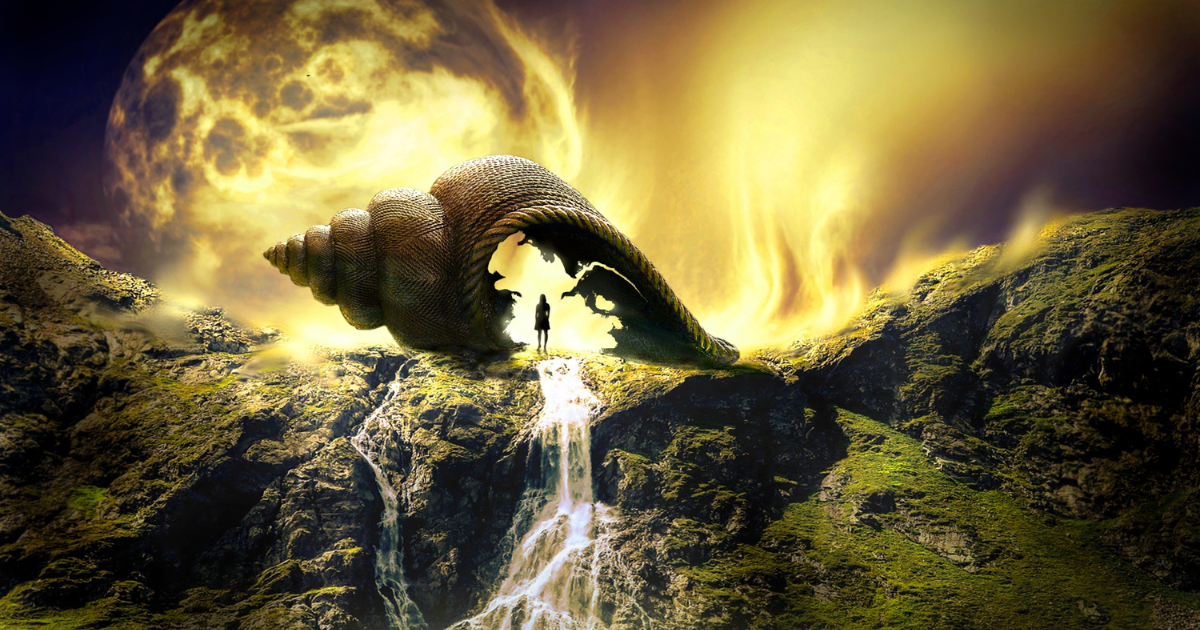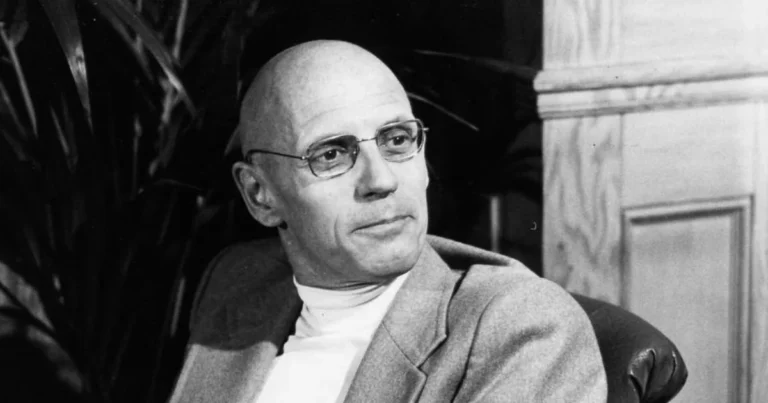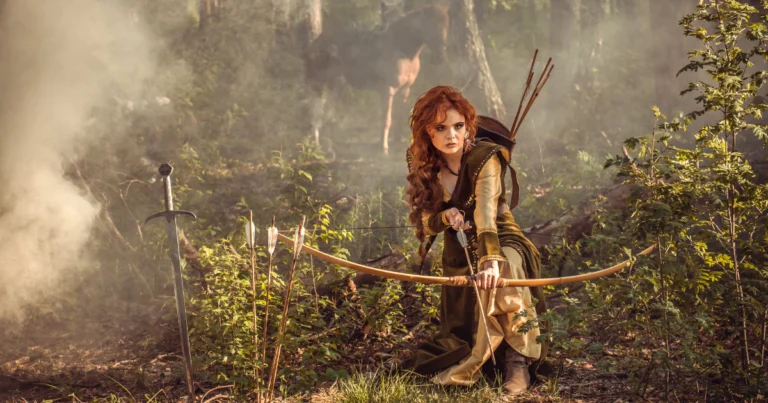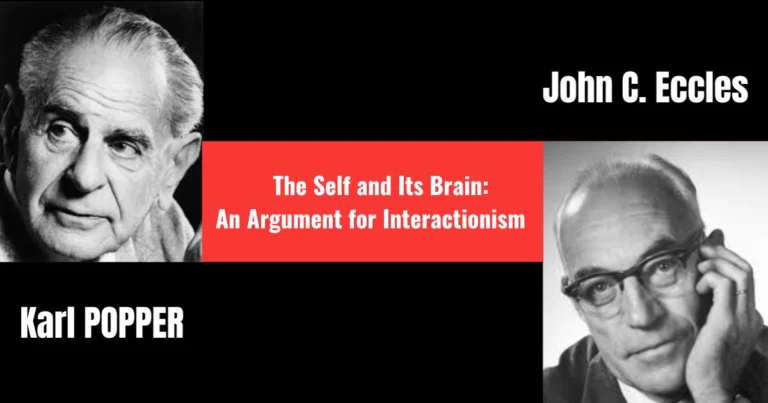Inside the writer’s brain (2/6): The power of world-building
Have you ever wondered what kind of minds conceived the Egyptian pyramids, masterpieces that have endured for over seven thousand years? Or the brilliance behind ancient Roman cities, each stone and column meticulously designed by human hands? These wonders weren’t the result of a single person’s effort. Behind every masterpiece stood a collective:
A visionary leader.
An architect with a dream.
Builders, artists, planners, and workers, each playing a vital role.
Together, they shaped the world as we know it.
Now, what if I told you that you alone can do the work of all those people, and maybe even more?
Yes, more.
Because unlike them, you’re not bound by the laws of physics, the limits of budget, or the constraints of material tools. Your only tool is your most powerful asset: your imagination.
Still not convinced?
Think of Minas Tirith or Gondor in The Lord of the Rings,
Hogwarts in Harry Potter, or Winterfell in Game of Thrones.
Have you ever seen such places in real life?
Probably not. But in the minds of millions of readers, they exist, vivid and unforgettable.
That’s the magic of world-building.
But before you unleash your imagination, let me give you one piece of advice:
Building a world requires care.
Without structure, your fictional world might fall apart, or worse, become the subject of memes and mockery. Why? Because even fantasy needs logic.
Geography: Where does the story happen?
Every world starts with place.
Is your story set on an island? In a kingdom? A vast continent? A floating city? Map it out, regions, villages, mountains, oceans. Break it down into cities, districts, sacred sites.
Now ask: what makes your world unique?
Want to make the sky orange? Go for it. Want the snow to fall in black? That’s amazing. Fantasy gives you the freedom to dream without restriction.
Also think about architecture, markets, currencies, transportation, and terrain. All of these add texture and realism to your world.
Civilizations & culture: How do people live?
Introduce readers to the people of your world.
What language do they speak, an existing tongue, a reconstructed one, or an entirely invented language like Dothraki in Game of Thrones? (Yes, I’m a hopeless victim of George R. R. Martin’s brilliance.) But don’t create a language just to show off, give it a purpose, a soul, a symbolism.
What do they wear? Be specific.
- What’s their daily attire?
- What do they wear to formal events, during rituals, or in battle?
- Do warriors have ornate swords like prized possessions?
How do they celebrate?
Weddings, births, seasonal festivals.
How do they mourn? What are their funeral rites and beliefs about death?
Think of rituals, taboos, and ancient stories passed down through generations. Culture brings emotional depth to a fantasy world.
Politics & power structures: Who rules, and how?
Who holds power in your world? Kings, emperors, councils? Are they united or in conflict?
This is the moment where imagination meets history. Read about real-world empires, how they rose and fell, how politics, colonization, and class struggle shaped societies.
Your readers will appreciate depth here. Avoid creating a utopian world with no conflict, it’s in political friction that great plots are born. Power must come from somewhere:
- Is it wealth?
- Magic?
- Bloodline?
- Prophecy?
Ask: Who wants power, and who’s willing to kill for it?
Economics & daily life: What does survival look like?
Even in fantasy, people need to eat, trade, and make a living.
- What food do they eat? What drinks are popular?
- Do they trade gold, silver, spices, enchanted relics?
- What jobs exist?
- What does a typical day look like for a blacksmith, a merchant, or a child?
The more grounded your daily life, the more real your world will feel.
Religion, philosophy & worldview: What do they believe?
Religion defines how people see life, death, and the unknown.
- Are there gods? Spirits? Prophets?
- Is there one religion or many? Do they coexist or clash?
- What do they believe about justice, fate, or the afterlife?
Faith can bring comfort, or war. Use it to add tension, beauty, and meaning.
Magic systems & creatures: Now comes the fun part
For many aspiring writers, this is the most exciting section. But remember: magic without rules is chaos.
First, Creatures:
Are there only humans? That’s fine, but a bit boring.
Bring in elves, djinn, shape-shifters, or invent your own species.
Ask:
- What makes each race unique, physically, socially, magically?
- How do they coexist… or clash?
Then, Magic:
Define your magic system with clarity.
- Where does it come from?
- Who can access it, and who’s forbidden from doing so?
- What are its limits? Consequences?
- Is it revered, feared, or institutionalized?
Most importantly: respect your own rules.
If you say in Chapter 3 that a creature can only be killed by dragon-blood-tipped arrows, don’t kill it in Chapter 31 by drowning it in a lake.
Know your world like you live in it, and the reader will believe it too.
A Simple World-Building Exercise
Let’s make it real.
Imagine you’ve time-traveled to the 7th century, and you want to write a book about the 2022 Football World Cup.
You’ll need to explain:
- What football is
- What a stadium is
- What a ball is
- What a team is
- Why uniforms change colors
- What “offside” and “penalty” mean
- Why people scream at glowing boxes (TVs!)
- What “red card” or “yellow card” mean
- Why people bet on outcomes they don’t control
Now imagine how much explaining you’d need to do for your fantasy world to make sense to someone completely new to it.
That’s what world-building is all about, making the impossible feel inevitable.
I hope this breakdown gave you a solid foundation for building your world. And trust me, it’s one of the most rewarding parts of being a fantasy writer. You’re not just telling a story, you’re creating an entire universe.
See you in the next article, where we dive into another essential element of storytelling:
Character Development.
📚 Further Reading: Books by Tarik Bouchnayf
- The Other Realm: Lost In Ayred
- The Other Realm: The Crimson World
- The Unjust War (The Other Realm Book 3)
- Empire of Rebels
- The Queen And The Eighth Rebel (Empire of Rebels Book 2)
- Empire of Rebels: The Lord King And The Lady Queen
- 309 Years Later
- The Queen And The Eighth Rebel
- كل شيء بدأ ببث
Author and Cloud Data & Artificial Intelligence Engineer
• Born on October 25, 1982, in Rislane, a small town nestled between Berkane and Oujda in Morocco.
• Holds a Bachelor's degree in Data Science from Johns Hopkins University.
• Former lecturer at the University of Créteil in Paris, where he combined technical expertise with creative passion.
• Currently works as an engineer specializing in cloud data and artificial intelligence.
• Writing, a long-suppressed desire, became an undeniable calling in his early twenties.
• Author of seven novels in English, three of which became bestsellers.
• Recently made a notable debut in Arabic literature with his first fantasy novel, marking a new chapter in his literary journey.
• Now lives in Belgium with his wife and their three children.
• Continues to pursue both his professional projects and his lifelong dream of writing.








